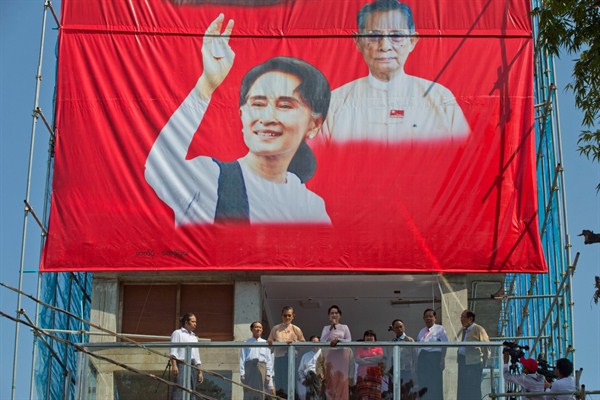This past Sunday, Myanmar’s people voted in their first true national elections in 25 years. The last national elections, in 1990, were essentially annulled by the junta that ruled Myanmar from 1962 until launching a transition to civilian rule in 2011. Unlike in 1990, this time many of Myanmar's people believed that the election results would be upheld, leading to the country’s first democratically elected government in five decades. On election day, the mood in many towns and cities was exuberant, and voters came to the polls in huge numbers—according to one estimate by election officials, some 80 percent of eligible voters cast ballots for the nearly 6,000 candidates representing over 90 parties.
Overall, irregularities appeared minimal. European Union and other election observers praised the quality of the poll, and there were no significant episodes of violence. The National League for Democracy (NLD), longtime opposition leader Aung San Suu Kyi’s party, appeared to be heading toward a large victory that would give it an absolute majority of seats in the 664-seat parliament. Several leading members of the government’s Union Solidarity and Development Party (USDP) have conceded, including the party chief and several ministers in the current government. Although final tallies are not due until later this week, the ruling party seems to have accepted that it lost any hopes of controlling parliament.
Such a peaceful election day was not what some politicians and Myanmar analysts had expected. In the run-up to the vote, thugs attacked one NLD politician in Yangon with machetes, and politicians from numerous parties warned that voters were being struck from the rolls and that the National Election Commission could oversee massive fraud. Hard-line, pro-junta Buddhist monks were reportedly traveling the country, trying to intimidate citizens into not voting for the NLD, and many Myanmar citizens living overseas found themselves not on voter rolls for early ballots.

